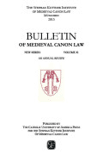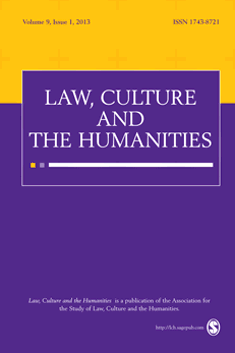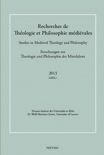
Bulletin of Medieval Canon Law-New Series
Scope & Guideline
Revealing the Legacy of Canon Law in Society
Introduction
Aims and Scopes
- Historical Analysis of Canon Law:
The journal provides in-depth historical studies on the development and application of canon law, examining its foundations, transformations, and influence on societal structures. - Interdisciplinary Approaches to Canonical Studies:
Research often intersects with areas such as theology, philosophy, and social history, allowing for a comprehensive understanding of the implications of canon law in medieval society. - Focus on Legal Practice and Jurisprudence:
The journal highlights the practical applications of canon law in ecclesiastical courts and governance, exploring case studies that illustrate its enforcement and interpretation. - Exploration of Key Figures and Texts:
Significant attention is given to influential jurists, texts, and legal maxims that shaped canon law, providing insights into the intellectual currents of the time. - Regional and Comparative Studies:
The journal features studies that compare the evolution of canon law across different regions and contexts, enriching the understanding of its localized adaptations and influences.
Trending and Emerging
- Vernacular Law and Customary Practices:
There is an increasing focus on how vernacular languages and local customs influenced the development of canon law, indicating a shift towards understanding law as a social construct rather than a purely theological or academic discipline. - Interplay Between Canon Law and Secular Law:
Emerging discussions emphasize the interactions and tensions between canon law and secular legal systems, particularly how canon law adapted to or influenced civil governance during the medieval period. - Gender and Canon Law:
Recent studies are beginning to explore the implications of canon law on gender dynamics within medieval society, particularly in the context of marriage and family law, pointing to a more inclusive approach to legal history. - Digital Humanities and Canon Law Research:
The use of digital tools and methodologies for analyzing and reconstructing historical legal texts and practices is on the rise, reflecting a broader trend in academia towards integrating technology with traditional scholarship.
Declining or Waning
- Focus on Papal Authority:
Although papal authority remains a significant topic, discussions surrounding its absolute power have become less frequent, possibly due to newer interpretations emphasizing collaborative governance within the Church. - Detailed Studies on Specific Juridical Texts:
Research centered on specific legal texts, such as individual decrees or lesser-known manuscripts, appears to be waning, as scholars increasingly seek broader thematic analyses or interdisciplinary approaches. - Exploration of Canon Law in Non-Western Contexts:
There has been a noticeable decrease in studies addressing the application of canon law outside of Western contexts, indicating a potential shift back to more traditional, Western-centric analyses.
Similar Journals

NOTRE DAME LAW REVIEW
The Cornerstone of Legal Research and CommentaryNOTRE DAME LAW REVIEW is a premier scholarly journal published by Notre Dame Law School, renowned for its rigorous examination and commentary on legal issues and the evolving jurisprudence of the United States. Established in 1926, the journal has become a vital resource for legal scholars, practitioners, and students, consistently earning a reputation for excellence as evidenced by its Q1 category classification in Law for 2023. With a solid ranking within the Scopus Social Sciences index, placing at #413 among 1025 journals, it captures significant contributions to legal scholarship, making it an essential part of any legal researcher's library. Though it does not currently offer open access options, the journal's impact is underscored by its rich history and commitment to advancing legal discourse. Scholars looking to stay abreast of the latest legal developments and analyses will find NOTRE DAME LAW REVIEW an indispensable tool for their research and practice.

Journal of College of Sharia and Islamic Studies
Connecting Scholars Through Open-Access KnowledgeThe Journal of College of Sharia and Islamic Studies, published by Qatar University, College of Sharia & Islamic Studies, is a premier academic platform dedicated to advancing the understanding and scholarly discourse in the field of Islamic studies and Sharia law. With an ISSN of 2305-5545 and an E-ISSN of 2523-1715, this open-access journal has been freely available since 2005, promoting accessibility to high-quality research for a global audience. Situated in Doha, Qatar, the journal serves as a pivotal resource for researchers, professionals, and students who seek to explore the complexities of Islamic jurisprudence, ethics, and philosophy. The journal's commitment to promoting rigorous scholarship is evidenced through its diverse articles, which not only address classical and contemporary issues in Islamic studies but also engage with interdisciplinary perspectives. As an essential resource within the academic community, it aims to foster dialogue and collaboration among scholars worldwide.

Revue Cirkevniho Prava-Church Law Review
Empowering Scholars in the Realm of Church LawRevue Cirkevniho Prava-Church Law Review is a pivotal academic journal dedicated to the study and discussion of church law, a vital field intersecting legal, theological, and social dimensions. Published by SPOLECNOST CIRKEVNI PRAVO in the picturesque city of Prague, Czech Republic, this journal serves as a platform for scholars and practitioners to engage with the latest research, legal frameworks, and case studies related to ecclesiastical law. While the journal does not currently offer open access, it is committed to advancing knowledge within its specialized field, making it an essential resource for researchers, professionals, and students interested in the implications and applications of church law in contemporary society. With its focus on rigorous scholarship and comprehensive analysis, Revue Cirkevniho Prava stands out as a reputable publication that contributes significantly to both academic discourse and practical understanding in church-related legal studies.

Kosciol i Prawo
Connecting Scholars on Law and SpiritualityKosciol i Prawo is a distinguished academic journal dedicated to the interdisciplinary exploration of law in relation to its ecclesiastical aspects, published by the TOWARZYSTWO NAUKOWE KUL. With an ISSN of 0208-7928 and an E-ISSN of 2544-5804, this open-access journal has been fostering scholarly discourse since 2012, ensuring that its valuable insights are accessible to researchers, professionals, and students alike. Based in Lublin, Poland, the journal serves as a vital platform for the dissemination of research related to legal theory, practice, and the intersection of law and religion. As researchers aim to understand the evolving legal landscape, Kosciol i Prawo provides a critical forum for exchanging findings, perspectives, and studies that contribute to the broader dialogue on the influence of ecclesiastical law in contemporary society. Its commitment to scholarly rigor and open access reflects a broader trend in academia towards increased availability of knowledge, making it an essential resource for anyone delving into this intriguing field.

Studia Prawnicze KUL
Exploring the Depths of Legal ThoughtStudia Prawnicze KUL is an esteemed academic journal published by the John Paul II Catholic University of Lublin, dedicated to the exploration of legal studies and philosophy of law. With the ISSN 1897-7146 and E-ISSN 2719-4264, this journal has adopted an Open Access model since 2019, ensuring that its noteworthy contributions to the field are freely accessible to scholars, practitioners, and students worldwide. The journal aims to disseminate rigorous research, theoretical insights, and practical perspectives in law, fostering scholarly dialogue and collaboration among its diverse readership. As a significant platform for legal scholarship in Poland, Studia Prawnicze KUL provides a vital resource for anyone engaged in the complexities of legal theory and practice, making an important impact in the field of legal studies.

HARVARD JOURNAL OF LAW AND PUBLIC POLICY
Navigating the Complexities of Law and SocietyHarvard Journal of Law and Public Policy, published by Harvard Society for Law and Public Policy, is a leading academic journal that explores the interplay between law, sociology, and political science. Established in 1980, this prestigious journal has grown to become a significant voice in its field, consistently ranking in the Q1 category for both Law and Sociology and Political Science as of 2023. The journal serves as a vital platform for scholarly discourse, featuring rigorous analysis and research that contributes to both theoretical and practical advancements in public policy and legal studies. While not an open-access journal, it is published from the esteemed Harvard Law School in Cambridge, MA, offering researchers, professionals, and students valuable insights into current legal and societal issues. With its long-standing impact, including a considerable presence in Scopus rankings, the Harvard Journal of Law and Public Policy continues to shape the academic landscape and inform public debate.

Law Culture and the Humanities
Fostering Scholarly Dialogue on Law's Cultural ImpactLaw Culture and the Humanities, published by SAGE Publications Ltd, serves as a pivotal forum for interdisciplinary dialogue at the intersection of law and the humanities. With an ISSN of 1743-8721 and an E-ISSN of 1743-9752, this esteemed journal has been contributing to scholarly discourse since its inception in 2005 and continues to do so until 2024. The journal carries a respectable impact factor showcased through its category rankings: Q3 in Arts and Humanities (miscellaneous), Q2 in Cultural Studies, and Q3 in Law. Its Scopus rankings reflect an impressive standing in the social sciences, particularly within Cultural Studies and Law, indicating that it is a fundamental resource for researchers and professionals aiming to explore the nuanced relationships between legal frameworks and cultural expressions. While not an Open Access journal, it offers substantial insights into contemporary debates, making it essential for academics and students engaged in the study of law's cultural dimensions.

Recherches de Theologie et Philosophie Medievales
Unveiling the Wisdom of the Middle AgesRecherches de Theologie et Philosophie Medievales is a distinguished scholarly journal dedicated to the exploration of medieval theology and philosophy, published by PEETERS in Belgium. With an ISSN of 1370-7493 and an E-ISSN of 1783-1717, it has become an essential resource for researchers and scholars within its domain since its inception in 1996. This journal occupies a notable position, recognized in the Q3 category across critical fields such as History, Philosophy, and Religious Studies in 2023, showcasing its valuable contribution to academic discourse. The journal ranks impressively in Scopus, holding positions of #202, #576, and #327 in Religious Studies, History, and Philosophy respectively, placing it in the 68th, 67th, and 59th percentiles. Though it operates under traditional access models, its rigorous peer-reviewed articles provide in-depth analyses and perspectives that are invaluable for students, academics, and professionals alike, making it an indispensable component of medieval studies.

Zbornik Radova Vizantoloskog Instituta
Diving Deep into the Nuances of Byzantine LiteratureZbornik Radova Vizantoloskog Instituta is a distinguished open-access journal published by the Institute of Byzantine Studies, Serbian Academy of Sciences and Arts, located in Belgrade, Serbia. Since its inception in 2003, this journal has served as a vital platform for the dissemination of scholarly research in the fields of Classics, History, Linguistics and Language, and Literature and Literary Theory. Although it currently holds a Q4 ranking in the 2023 category quartiles, its commitment to fostering academic discourse and research accessibility is unwavering. The journal features a diverse range of articles that explore the complexities and nuances of Byzantine studies and related disciplines, catering to a broad audience of researchers, professionals, and students dedicated to the humanities. With a focus on both historical context and contemporary perspectives, Zbornik Radova Vizantoloskog Instituta aims to contribute significant insights into the academic community while promoting scholarly interaction on a global scale.

Vestnik Permskogo Universiteta-Juridicheskie Nauki
Advancing Legal Scholarship for a Global AudienceVestnik Permskogo Universiteta-Juridicheskie Nauki, published by the Perm State National Research University, serves as a prominent platform for the dissemination of legal scholarship since its inception. With an Open Access policy implemented in 2009, this journal offers a wide range of legal studies, including comparative law, constitutional law, and international law, making it an essential resource for researchers, academics, and practitioners in the field. Although it is a relatively young publication, its commitment to quality and accessibility has established it as a respected voice in jurisprudence, contributing significantly to both national and international legal discourse. Researchers and students alike will find valuable insights within its pages, encompassing the latest developments and theoretical advancements within Russian and global legal systems. For those looking to stay informed on current legal issues and academic debates, this journal is a must-read.